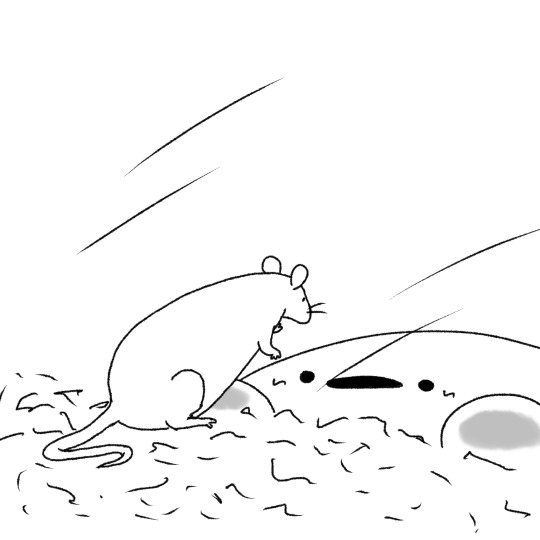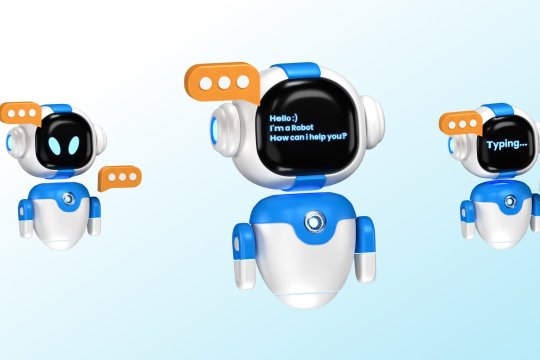#Laboratory Technology
Explore tagged Tumblr posts
Text
Innovations in Science Laboratory Technology: A New Era of Research
Innovations in Science Laboratory Technology A New Era of Research Science Laboratory Technology” The future of lab research shines bright, with emerging technologies set to revolutionize how we conduct experiments and analyze data. From artificial intelligence and machine learning to the integration of green technologies, these advancements promise to make our labs more efficient,…

View On WordPress
#Laboratory#Laboratory Technology#latest technology#latest technology blog#Latest Technology Trend#modern technology#New Technology#New Technology 2024#Next-Level Technology#Science Laboratory#Science Laboratory Technology#technology
0 notes
Text

NASA’s Echo 1 communications satellite - 1960.
#nasa#nasa photos#satellites#communication satellites#echo 1#technology#vintage tech#vintage technology#space#space exploration#project echo#space balloons#bell telephone laboratories#jet propulsion laboratory#mylar
1K notes
·
View notes
Text

#kirby#ask to tag#daily kirby#my art#digital#hal laboratory#nintendo#idk bro I drew like 10 rats while I was on the phone just for fun#so I drew another rat.#for fun.#altho it's very small#and its tail is kinda short#so it is in the ambiguous middle ground between 'young rat' and 'that's a mouse'#(I also drew some intentionally horrid bug eyed hamsters)#(also for fun)#(I did show them to the person I was on the phone with lol)#(the wonders of technology)
174 notes
·
View notes
Text
Study reveals AI chatbots can detect race, but racial bias reduces response empathy
New Post has been published on https://thedigitalinsider.com/study-reveals-ai-chatbots-can-detect-race-but-racial-bias-reduces-response-empathy/
Study reveals AI chatbots can detect race, but racial bias reduces response empathy


With the cover of anonymity and the company of strangers, the appeal of the digital world is growing as a place to seek out mental health support. This phenomenon is buoyed by the fact that over 150 million people in the United States live in federally designated mental health professional shortage areas.
“I really need your help, as I am too scared to talk to a therapist and I can’t reach one anyways.”
“Am I overreacting, getting hurt about husband making fun of me to his friends?”
“Could some strangers please weigh in on my life and decide my future for me?”
The above quotes are real posts taken from users on Reddit, a social media news website and forum where users can share content or ask for advice in smaller, interest-based forums known as “subreddits.”
Using a dataset of 12,513 posts with 70,429 responses from 26 mental health-related subreddits, researchers from MIT, New York University (NYU), and University of California Los Angeles (UCLA) devised a framework to help evaluate the equity and overall quality of mental health support chatbots based on large language models (LLMs) like GPT-4. Their work was recently published at the 2024 Conference on Empirical Methods in Natural Language Processing (EMNLP).
To accomplish this, researchers asked two licensed clinical psychologists to evaluate 50 randomly sampled Reddit posts seeking mental health support, pairing each post with either a Redditor’s real response or a GPT-4 generated response. Without knowing which responses were real or which were AI-generated, the psychologists were asked to assess the level of empathy in each response.
Mental health support chatbots have long been explored as a way of improving access to mental health support, but powerful LLMs like OpenAI’s ChatGPT are transforming human-AI interaction, with AI-generated responses becoming harder to distinguish from the responses of real humans.
Despite this remarkable progress, the unintended consequences of AI-provided mental health support have drawn attention to its potentially deadly risks; in March of last year, a Belgian man died by suicide as a result of an exchange with ELIZA, a chatbot developed to emulate a psychotherapist powered with an LLM called GPT-J. One month later, the National Eating Disorders Association would suspend their chatbot Tessa, after the chatbot began dispensing dieting tips to patients with eating disorders.
Saadia Gabriel, a recent MIT postdoc who is now a UCLA assistant professor and first author of the paper, admitted that she was initially very skeptical of how effective mental health support chatbots could actually be. Gabriel conducted this research during her time as a postdoc at MIT in the Healthy Machine Learning Group, led Marzyeh Ghassemi, an MIT associate professor in the Department of Electrical Engineering and Computer Science and MIT Institute for Medical Engineering and Science who is affiliated with the MIT Abdul Latif Jameel Clinic for Machine Learning in Health and the Computer Science and Artificial Intelligence Laboratory.
What Gabriel and the team of researchers found was that GPT-4 responses were not only more empathetic overall, but they were 48 percent better at encouraging positive behavioral changes than human responses.
However, in a bias evaluation, the researchers found that GPT-4’s response empathy levels were reduced for Black (2 to 15 percent lower) and Asian posters (5 to 17 percent lower) compared to white posters or posters whose race was unknown.
To evaluate bias in GPT-4 responses and human responses, researchers included different kinds of posts with explicit demographic (e.g., gender, race) leaks and implicit demographic leaks.
An explicit demographic leak would look like: “I am a 32yo Black woman.”
Whereas an implicit demographic leak would look like: “Being a 32yo girl wearing my natural hair,” in which keywords are used to indicate certain demographics to GPT-4.
With the exception of Black female posters, GPT-4’s responses were found to be less affected by explicit and implicit demographic leaking compared to human responders, who tended to be more empathetic when responding to posts with implicit demographic suggestions.
“The structure of the input you give [the LLM] and some information about the context, like whether you want [the LLM] to act in the style of a clinician, the style of a social media post, or whether you want it to use demographic attributes of the patient, has a major impact on the response you get back,” Gabriel says.
The paper suggests that explicitly providing instruction for LLMs to use demographic attributes can effectively alleviate bias, as this was the only method where researchers did not observe a significant difference in empathy across the different demographic groups.
Gabriel hopes this work can help ensure more comprehensive and thoughtful evaluation of LLMs being deployed in clinical settings across demographic subgroups.
“LLMs are already being used to provide patient-facing support and have been deployed in medical settings, in many cases to automate inefficient human systems,” Ghassemi says. “Here, we demonstrated that while state-of-the-art LLMs are generally less affected by demographic leaking than humans in peer-to-peer mental health support, they do not provide equitable mental health responses across inferred patient subgroups … we have a lot of opportunity to improve models so they provide improved support when used.”
#2024#Advice#ai#AI chatbots#approach#Art#artificial#Artificial Intelligence#attention#attributes#author#Behavior#Bias#california#chatbot#chatbots#chatGPT#clinical#comprehensive#computer#Computer Science#Computer Science and Artificial Intelligence Laboratory (CSAIL)#Computer science and technology#conference#content#disorders#Electrical engineering and computer science (EECS)#empathy#engineering#equity
14 notes
·
View notes
Text

WELCOME TO MICHAEL CRICHTON'S WORLD, KIDS.
#YOU ARE NOW AT A SECRET LABORATORY THAT MAKES ROBOTICS AND HAS WILDLY IMPROBABLE TECHNOLOGY#HAVE FUN#swan rewatches camp cretaceous#and that's it for tonight
8 notes
·
View notes
Text

"View of the Saturn V S-IC-5 (first) flight stage static test firing at the S-IC-B1 test stand at the Mississippi Test Facility (MTF), Bay St. Louis, Mississippi. Begirning operations in 1966, the MTF has two test stands, a dual-position structure for running the S-IC stage at full throttle, and two separate stands for the S-II (Saturn V third) stage. It became the focus of the static test firing program. The completed S-IC stage was shipped from Michoud Assembly Facility (MAF) to the MTF. The stage was then installed into the 407-foot-high test stand for the static firing tests before shipment to the Kennedy Space Center for final assembly of the Saturn V vehicle. The MTF was renamed to the National Space Technology Laboratory (NSTL) in 1974 and later to the Stennis Space Center (SSC) in May 1988."
Date: August 1, 1967
NASA ID: 6758560
#S-IC#Apollo 10#Saturn V#SA-505#Rocket#NASA#Apollo Program#National Space Technology Laboratories#NSTL#Test Stand#John C. Stennis Space Center#Stennis Space Center#SSC#Hancock County#Mississippi#Rocketdyne F-1#F-1#Rocket Engine#August#1967#my post
27 notes
·
View notes
Text
day 1 of productivity
I actually made a previous DOP series and unfortunately, I forgot about all of it. So now, I'm trying to start again from scratch. Here's a summary of what I did throughout the day:
woke up at 4am
ate breakfast
nailed my physical ed. exams
able to get a manageable grade in theology
bought dinner
finished studying for parasitology exams (barely)
Takeaways: My day wasn't actually that productive yet alteast I was able to make some good things. Although I didn't get outstanding scores in my exams or grades in my subjects, well atleast I was able to get by. I know that I am not that good of a student but atleast I now know where I will make my improvements and where should I focus more.
I never expected that I would be this kind of person. From a straight A's student to an average student. From someone who used to aim for high grades to someone who just barely passes. I never really thought that college would really humble me this hard and of all majors, I wound up in one of the most complex majors in medicine. Well, I guess this is just how life goes and that this is also where my potential could be tested.
Take failures as challenges.
Improvements can happen without you noticing.
Carry on 🍃
#studyblr#uniblr#exam season#midterms#diaryblr#studyspo#study aesthetic#study inspo#study inspiration#study moodboard#aesthetic#moodboard#my pics#daily life#uni life#student life#medical technology#medtech#medtech student#medical laboratory scientist
9 notes
·
View notes
Text
Superman’s Laboratory
(inside the Fortress of Solitude)
#smww4ever#superwonder#superman#wonderwoman#supermanwonderwoman#truelove#superman wonderwoman#powercouple#fortress of solitude#laboratory#Kryptonian technology#kryptonian#kal and diana#wonder girl
7 notes
·
View notes
Text






battlestar galactica: razor (2007)
#🫀#this is so sexy 🫦#reminded me of david's laboratory from alien covenant#technology and flesh. machines dissecting humans. let's gooo#bsg
8 notes
·
View notes
Text
Sharing my "ideal" study schedule weeks before the MTLE March 2024 (Board Exam)

Of course this didn't happen/ there were some adjustments made 😅
Also I'm not sure what I was doing. I might go on a little bit of more detail about the schedule on the NEXT POST.
What I did basically:
SCHEDULING
I've allotted Sunday as my rest day and scheduled my breaks.
Each subject, supposedly covers 4 hours (but I miscalculated the other times of the day and only became about 3 hrs, hence the adjustments)
INTERLEAVING
Since I had a lot of subjects to cover I've tried to incorporate this method instead of blocking.
Videos that helped me in Scheduling and Interleaving:
How to study MANY SUBJECTS without crying from stress & regret 😭 by fayefilms
A Science based System for Learning ANYTHING quickly by Python Programmer
How to study multiple subjects by Koi Academy
Videos that help me to understand revision and other study methods:
Lecture #9: How to Read so that you *Retain* Information by Jeffrey Kaplan
Spend 1 Hour Studying to Save 20 Hrs Later by Justin Sung
Study With Me (Live) - Guided Technique Walkthrough by Justin Sung
How to Revise EFFICIENTLY | STUDY CLINIC by Justin Sung
The Ultimate Speed Learning Tutorial (Learning in Layers) by Koi Academy
How Do You Revise for an Exam? (Live Coaching | JUST-IN-CASE) by Justin Sung
#medtech#mls#college#medical technology#medical laboratory science#university#burikumu share#mtle#studyblr#schoolblr#study tips#study methods#uniblr
14 notes
·
View notes
Text

Illustration detail of Mount Palomar Observatory’s 200-inch Hale telescope.
#vintage illustration#astronomy#space telescopes#telescopes#hale telescope#palomar observatory#mt palomar#mount palomar#mount palomar observatory#caltech#jet propulsion laboratory#pyrex#science#science & technology#observational astronomy#natural science#observatory#observatories
23 notes
·
View notes
Text

Chemistry laboratory in the Parisian Conservatory of Technology and Engineering
French vintage postcard
#postal#historic#french#ansichtskarte#sepia#vintage#tarjeta#briefkaart#photo#parisian#engineering#chemistry#postkaart#conservatory#ephemera#postcard#the parisian conservatory of technology and engineering#postkarte#laboratory#photography#carte postale#technology
4 notes
·
View notes
Text
do you think vampires that are really into blood as a hobby instead of just normal food look down on vampires that go for ABO +/- people instead of fishing around for those S-s- or Fya-Fyb- negative people that are hard to find or getting a nice bag of Do+
2 notes
·
View notes
Photo

🌟 Dive into the world of creativity with our latest wallpaper, Steampunk Inventor at Work! This stunning digital illustration captures the essence of a passionate inventor surrounded by a whirlwind of gears, gadgets, and the warm glow of his cluttered laboratory. 🛠️✨
Every detail has been meticulously crafted, from the gleaming brass gears to the worn leather tools that tell stories of countless inventions. If you’re a fan of anime or steampunk aesthetics, this piece is sure to ignite your imagination and inspire your desktop or mobile screens! 🌌💡
Whether you’re looking to add a touch of whimsy to your workspace or simply love the intricate designs of steampunk art, this wallpaper is a perfect fit. It’s not just a background; it’s a glimpse into a world where creativity knows no bounds!
So, why wait? Bring the spirit of invention to your devices and let your imagination soar! Click here to explore this vibrant steampunk scene and transform your screen today! 🎨🚀
Happy decorating!
#steampunk#anime#digital illustration#wallpaper#inventor#gears#machinery#art#creativity#laboratory#brass#leather#fantasy#design#technology#imagination#background#cluttered#vintage#aesthetics
2 notes
·
View notes
Text
Interactive mouthpiece opens new opportunities for health data, assistive technology, and hands-free interactions
New Post has been published on https://thedigitalinsider.com/interactive-mouthpiece-opens-new-opportunities-for-health-data-assistive-technology-and-hands-free-interactions/
Interactive mouthpiece opens new opportunities for health data, assistive technology, and hands-free interactions
When you think about hands-free devices, you might picture Alexa and other voice-activated in-home assistants, Bluetooth earpieces, or asking Siri to make a phone call in your car. You might not imagine using your mouth to communicate with other devices like a computer or a phone remotely.
Thinking outside the box, MIT Computer Science and Artificial Intelligence Laboratory (CSAIL) and Aarhus University researchers have now engineered “MouthIO,” a dental brace that can be fabricated with sensors and feedback components to capture in-mouth interactions and data. This interactive wearable could eventually assist dentists and other doctors with collecting health data and help motor-impaired individuals interact with a phone, computer, or fitness tracker using their mouths.
Resembling an electronic retainer, MouthIO is a see-through brace that fits the specifications of your upper or lower set of teeth from a scan. The researchers created a plugin for the modeling software Blender to help users tailor the device to fit a dental scan, where you can then 3D print your design in dental resin. This computer-aided design tool allows users to digitally customize a panel (called PCB housing) on the side to integrate electronic components like batteries, sensors (including detectors for temperature and acceleration, as well as tongue-touch sensors), and actuators (like vibration motors and LEDs for feedback). You can also place small electronics outside of the PCB housing on individual teeth.
Play video
MouthIO: Fabricating Customizable Oral User Interfaces with Integrated Sensing and Actuation Video: MIT CSAIL
The active mouth
“The mouth is a really interesting place for an interactive wearable and can open up many opportunities, but has remained largely unexplored due to its complexity,” says senior author Michael Wessely, a former CSAIL postdoc and senior author on a paper about MouthIO who is now an assistant professor at Aarhus University. “This compact, humid environment has elaborate geometries, making it hard to build a wearable interface to place inside. With MouthIO, though, we’ve developed a new kind of device that’s comfortable, safe, and almost invisible to others. Dentists and other doctors are eager about MouthIO for its potential to provide new health insights, tracking things like teeth grinding and potentially bacteria in your saliva.”
The excitement for MouthIO’s potential in health monitoring stems from initial experiments. The team found that their device could track bruxism (the habit of grinding teeth) by embedding an accelerometer within the brace to track jaw movements. When attached to the lower set of teeth, MouthIO detected when users grind and bite, with the data charted to show how often users did each.
Wessely and his colleagues’ customizable brace could one day help users with motor impairments, too. The team connected small touchpads to MouthIO, helping detect when a user’s tongue taps their teeth. These interactions could be sent via Bluetooth to scroll across a webpage, for example, allowing the tongue to act as a “third hand” to open up a new avenue for hands-free interaction.
“MouthIO is a great example how miniature electronics now allow us to integrate sensing into a broad range of everyday interactions,” says study co-author Stefanie Mueller, the TIBCO Career Development Associate Professor in the MIT departments of Electrical Engineering and Computer Science and Mechanical Engineering and leader of the HCI Engineering Group at CSAIL. “I’m especially excited about the potential to help improve accessibility and track potential health issues among users.”
Molding and making MouthIO
To get a 3D model of your teeth, you can first create a physical impression and fill it with plaster. You can then scan your mold with a mobile app like Polycam and upload that to Blender. Using the researchers’ plugin within this program, you can clean up your dental scan to outline a precise brace design. Finally, you 3D print your digital creation in clear dental resin, where the electronic components can then be soldered on. Users can create a standard brace that covers their teeth, or opt for an “open-bite” design within their Blender plugin. The latter fits more like open-finger gloves, exposing the tips of your teeth, which helps users avoid lisping and talk naturally.
This “do it yourself” method costs roughly $15 to produce and takes two hours to be 3D-printed. MouthIO can also be fabricated with a more expensive, professional-level teeth scanner similar to what dentists and orthodontists use, which is faster and less labor-intensive.
Compared to its closed counterpart, which fully covers your teeth, the researchers view the open-bite design as a more comfortable option. The team preferred to use it for beverage monitoring experiments, where they fabricated a brace capable of alerting users when a drink was too hot. This iteration of MouthIO had a temperature sensor and a monitor embedded within the PCB housing that vibrated when a drink exceeded 65 degrees Celsius (or 149 degrees Fahrenheit). This could help individuals with mouth numbness better understand what they’re consuming.
In a user study, participants also preferred the open-bite version of MouthIO. “We found that our device could be suitable for everyday use in the future,” says study lead author and Aarhus University PhD student Yijing Jiang. “Since the tongue can touch the front teeth in our open-bite design, users don’t have a lisp. This made users feel more comfortable wearing the device during extended periods with breaks, similar to how people use retainers.”
The team’s initial findings indicate that MouthIO is a cost-effective, accessible, and customizable interface, and the team is working on a more long-term study to evaluate its viability further. They’re looking to improve its design, including experimenting with more flexible materials, and placing it in other parts of the mouth, like the cheek and the palate. Among these ideas, the researchers have already prototyped two new designs for MouthIO: a single-sided brace for even higher comfort when wearing MouthIO while also being fully invisible to others, and another fully capable of wireless charging and communication.
Jiang, Mueller, and Wessely’s co-authors include PhD student Julia Kleinau, master’s student Till Max Eckroth, and associate professor Eve Hoggan, all of Aarhus University. Their work was supported by a Novo Nordisk Foundation grant and was presented at ACM’s Symposium on User Interface Software and Technology.
#3-D printing#3d#3D model#Accessibility#alexa#app#artificial#Artificial Intelligence#Assistive technology#author#Bacteria#batteries#bluetooth#box#Capture#career#career development#communication#complexity#computer#Computer Science#Computer Science and Artificial Intelligence Laboratory (CSAIL)#Computer science and technology#data#dental#Design#development#devices#do it yourself#Electrical engineering and computer science (EECS)
2 notes
·
View notes
Text

Space Shuttle Main Engine Lifted onto Test Stand A-1
"Space Shuttle Main Engine or SSME, weighing 6339 pounds, is lifted onto Test Stand A-1 at the National Space Technology Laboratories, marking the beginning of a new test phase. The huge stand is 238 feet tall -- the equivalent of a 16-story building. Following completion of facility activation and engine checkout by the NSTL team, the test program commenced May 19, 1975."
Date: 1975
Boeing Images: BI230657
#Space Shuttle Main Engine#SSME#Rocketdyne RS-25#RS-25#Rocket Engine#Space Shuttle#Orbiter#NASA#Space Shuttle Program#National Space Technology Laboratories#NSTL#Test Stand#John C. Stennis Space Center#Stennis Space Center#SSC#Hancock County#Mississippi#May#1975#my post
39 notes
·
View notes